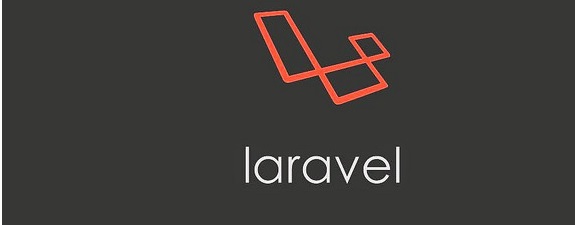PHP Framework with Laravel and Zend
PHP Framework
Web application development can be a time intensive and complicated process as it involves delivering unique user experiences over browsers and smartphones. Frameworks can help to develop projects faster and work better. It is a globally accepted programming language, helping developers to create exclusive web applications in a short time. Without a proper PHP framework, it is difficult to manage the coding. However, it can be streamlined by using PHP framework to create simple and fast applications.
A PHP framework also helps to achieve application scalability and simplify maintenance. To achieve economies of scale, your top most priority must be to develop high quality apps with optimal use of resources therefor the PHP framework will do the specific tasks. A framework provides a standard way to build and deploy applications. Frameworks may include support programs, compilers, code libraries, tool sets, and application programming interfaces (APIs) that bring together all the different components to enable development of a project or system. This framework can provide well-organised, reusable and maintainable code. It promotes modern web development practices such as OOP (Object-Oriented Programming) tools.
Some examples of PHP frameworks are
- Laravel
- Zend
- Symfony
- CodeIgniter
- Yii 2
- Phalcon
- CakePHP
- Slim
Advantages of using Frameworks
- Rapid development using the libraries and tools provided by the framework
- Easy to upgrade and maintain the developed applications
- Excellent community support
- Security features such as Input Filtering and Output Encoding
Laravel Framework
- It is a free open source PHP web framework and was launched in 2011
- Also it regarded as most popular framework together with Symfony, CodeIgniter, Yii2
- Laravel has an MIT license
- The Source code is hosted on GitHub
- Now the latest version of Laravel 5.4 is available
- Memory recommended for the Laravel is 1GB
- 17 Mb Library file size needed
- 100 requests per second accepted
- The data storage is Berkeley DB, Relational DB, File system
- Language supporting is php & amp, Javascript and front end is PHP
- Total number of Plugins is 8000
- RBAC (Role Based Access Control) present in Laravel
- Laravel uses a lightweight template engine called blade, to speed up compiling tasks
- Sqlite, Mysql, Postgresql, Redis, Microsoft SQLServer 2012, Mongo DB, these are the database supported
- Laravel attempts to take the pain out of development by easing common tasks used in the majority of web projects, such as authentication, routing, sessions, and caching. It is accessible, yet powerful, providing powerful tools needed for large applications
- Programming paradigm is Functional, Event Driven, Object Oriented
- It offers extensive cloud platform support for Google App Engine, Amazon Ec2, Fortrabbit, Pagoda Box, Digital Ocean, Heroku, Linode, Openshift
- All cookies created by the framework are encrypted and signed with an authentication code
- It is easy to configure
- It can perform complex operations, accessed by many users and easily scaled
- Time and funds will be used less, when compared to Zend
The popularity of Laravel increased in a short span of time. A bigger number of companies prefer Laravel especially to build new applications. It has a simple syntax to do the task easily. Some of the features are modular packaging system with a dedicated dependency manager, different ways for accessing relational databases, utilities that aid in application deployment and maintenance. Laravel’s Eloquent ORM uses PDO parameter binding to avoid SQL injection. Parameter binding ensures that malicious users can’t pass in query data.
Zend Framework
- It is an open source object oriented web application framework implemented on PHP 5. It was launched in 2006
- Zend is a stable framework
- It is collection of PHP based packages. The component of Zend is designed with few dependencies on other components. This loosely coupled architecture allows developers to use components individually
- It has more than 148 million installations
- Zend 2.4 is the latest version available in the market
- Zend has an BSD License
- Front end is PHP & JavaScript
- It has wide customization options so it is used by many organisations, so it is ideal for building high-end applications
- It is a preferred framework for developing larger and complex applications for enterprise grade users
- The memory needed is 512 Mb
- 8 Mb library file size
- Receive 1000 requests per second
- Data storage is Relational DB, File System
- Scripting language is PHP
- The template language does not account for Blade in addition to PHP, Smarty and Twig
- The database supports Microsoft Bi, Mysql, Postgresql, MariaDB, Sqlite, IBM DB2, Oracle, Mongodb
- It has an easy-to-use drag and drop editor that supports front-end like (HTML, CSS,J avaScript), immediate online debugging, cryptographic coding tools, PHP Unit testing tools and a connected Database Wizard
- Programming paradigm is Event Driven and Object Oriented
- Cloud platform supports Windows Azure, Amazon Ec2, Heroku, Openshift
- It’s hard to configure
- It provides a number of ready to use components to improve the application security
- It has built in authentication support that is facilitated via RBAC (Role Based Access Control)
- We can do Cookie information management in Zend
- Total number of Plugins is 9999
Conclusion
There is always a competition between Laravel and Zend. From this article we can conclude that Laravel is the better option for small and medium sized applications. But in the case of Zend, that offers a lot of flexibility compared to Laravel, so it used for high end applications like larger enterprise solutions. Both offers speed, assistance,and standardised application development processes. Laravel may not offer the flexibility of Zend. However, which framework is more suitable will depend on how accurately you evaluate and assess the needs of the organisation.
Comparison of 2 best PHP network
Laravel or Zend?
Difference between Zend and Laravel
Which framework will be better?
Flicker.com // Eric Norris, Raj Anand, Blog Image.




